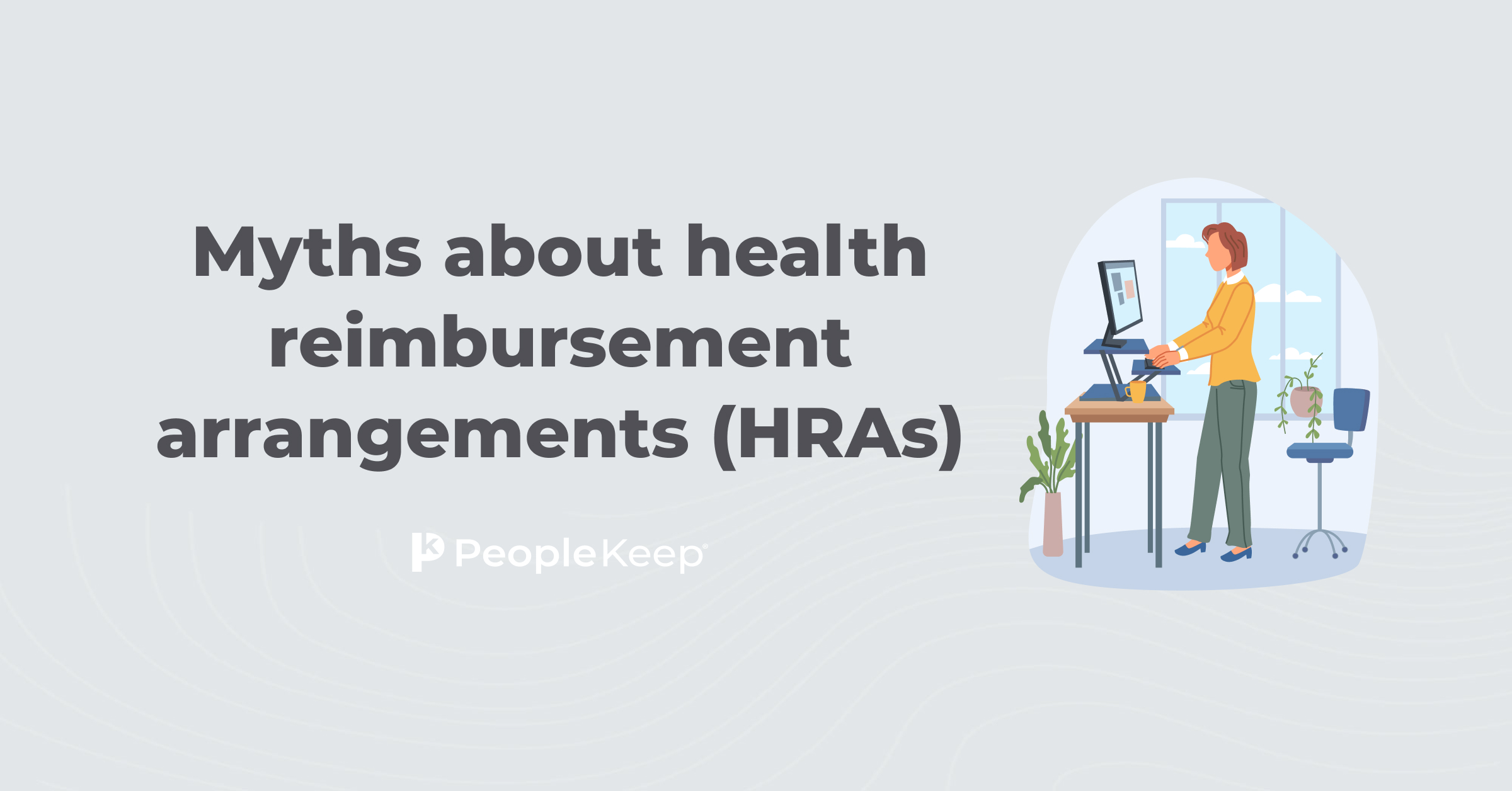Six tools every health insurance agent should have
By Holly Bengfort on January 14, 2025 at 10:30 AM
In the competitive insurance industry, success isn't just about selling policies. It's about building trust, managing relationships, and providing exceptional service to your clients.
Having the proper tools can make all the difference between success and failure for your insurance company. As an insurance agent or broker, you should have access to the latest technology and digital tools to help you maximize your success and grow your book of business.
In this article, we'll explore six essential tools that every insurance agent should have in their arsenal to take their career to the next level.
In this blog post, you'll learn the following:
- How equipping yourself with the right tools sets you apart from your competitors.
- Examples of systems used by successful insurance professionals.
- Why it's important to stay up-to-date with industry trends.
Essential tools for insurance professionals
Insurance professionals should use digital tools to enhance the efficiency, accuracy, and overall effectiveness of their work. They can streamline processes, allowing for quicker data analysis, improved customer relationship management, and better risk assessment.
Additionally, using technology helps insurance professionals stay organized, keep track of policies, and communicate more effectively with clients. This can help minimize financial losses by improving customer satisfaction.
Let's look at how these six tools below can contribute to the growth and success of your business.
1. CRM software
The first useful tool for insurance agents is customer relationship management (CRM) software. It's essential for managing and organizing client data. With CRM software, you can track client interactions, store important documents, and set follow-up reminders. Look for a CRM system specifically tailored to health insurance agents' needs, with features like policy tracking, quoting, and integration with insurance carriers.
After all, information is the key to any sale. If you're reaching out to a potential client you talked to six months ago, you should have notes about that call. Everything they might have told you about their experience with health insurance, any dependents they may have, and their long-term goals should be readily available so you don't waste time bringing up questions you've already asked.
With a CRM, you can build better relationships with clients. Your customer service experience will become smoother for both you and your clients when you can instantly look up their contact records and see a full report of everything you've ever known about them.
Here are just a few CRM systems that can help you optimize your lead and customer experience:
- HubSpot
- Salesforce
- Pipedrive
- Oracle
- Zoho
2. AMS software
If you work in the insurance business, you know how important it is to nurture leads while keeping your existing customers happy. An agency management system (AMS) simplifies workflows, improves communication, and secures data. AMS software can assist insurance agents with day-to-day administrative tasks.
AMS software can also help with tracking client policies, storing documents, and generating insights into your performance.
Here are some AMS systems commonly used by insurance agents:
- Vertafore
- Partner Platform
- ZyWave
- Better Agency
- Radiusbob
3. Social media marketing tools
Engaging with current and potential clients on the platforms they use online is important for insurance agents. Social media serves as a significant marketing tool.
But, posting daily content on Facebook, Instagram, LinkedIn, and X can be challenging. Social media management tools let you automate and schedule posts in advance on all social media platforms, saving you time while engaging with your audience consistently. This helps establish strong client relationships and improve client satisfaction.
Here are some popular social media management tools for insurance agents:
- HootSuite
- Buffer
- Sprout Social
- SocialPilot
- CoSchedule
4. Cross-channel communication tools
Effective communication builds trust and rapport with your leads and current clients. Invest in digital tools that facilitate seamless communication, such as video conferencing software, email newsletters, and instant messaging platforms.
With so many platforms to keep track of, implementing cross-channel communication tools allows you to connect all of these forms of client communication within one single platform. You'll be able to stay on top of your overflowing inbox and ensure you don't miss a single email, text message, or comment.
Here are a few options for email marketing, chat, and messenger tools to help you stay organized:
- Email and SMS messaging tools
- MailChimp
- Twilio
- Klaviyo
- ActiveCampaign
- Podium
- ConstantContact
- Video tools
- Google Meet
- Zoom
5. Office organization software
With more homes turning into offices, you'll need to make sure you've got all the office organization software you need to do your job from home. Whether it's note-taking, list-making, or document signing, there are dozens of tools designed to make remote and traditional office work even easier.
The best of these tools will be cloud- or web-based, so all of your work is instantly saved, backed up, and accessible whenever and wherever you need it—even if you have a power outage or your computer crashes.
Here are some popular online tools that improve workflow and productivity:
- Google Workspace, including Google Docs
- Microsoft Teams
- DocuSign
- Adobe Scan
- Trello
6. Quote software
The sixth tool for insurance agents is quote software. To provide the best options to your clients, you need access to a wide range of health insurance policies and insurance coverage options. Quoting and comparison tools can help you easily navigate various policies, allowing you to generate actual quotes and compare different plans side by side. These quote engines save you time and ensure you can offer your clients the most suitable options.
Here are a few tools for insurance agents that allow you to generate custom quotes:
- Salesforce CPQ
- PandaDoc
- QuoteWerks
- Quotient
- EZLynx
Staying current with industry trends
In addition to having the right tools, you need to stay up-to-date on the latest health insurance trends and challenges. One trend is the increase in small to mid-size businesses switching from traditional group health insurance to alternative benefits like health reimbursement arrangements (HRAs). HRAs allow employers to reimburse employees tax-free for their individual health insurance premiums and other qualified medical expenses.
Two of the most popular stand-alone HRAs are:
- The individual coverage HRA (ICHRA): The ICHRA has no contribution limits, so your clients can offer as much as they'd like as an allowance. They can also differ allowance amounts based on 11 employee classes.
- The qualified small employer HRA (QSEHRA): The QSEHRA is only for clients who have fewer than 50 full-time equivalent employees (FTEs). It also comes with contribution limits.
According to the HRA Council1, hundreds of thousands of U.S. workers now have ICHRA or QSEHRA as a health benefit across all 50 states. ICHRA adoption also grew 29% year over year between 2023 and 2024.
Since group health insurance isn't always the best fit for every company, HRAs can help you support more customers. By knowing more about HRAs and how they work, you can become an inclusive agent or broker that offers alternative health benefit options alongside traditional group plans.
Conclusion
With advancements in digital solutions, a savvy insurance agent must stay ahead of the curve to not only survive but thrive. These six tools for insurance agents can streamline your processes and enable you to provide exceptional service to your prospective and current customers.
Through PeopleKeep's referral program, brokers and insurance agents can offer health benefits solutions that other advisors don't know about or fully understand. After you join our referral program, we'll give you the insights you need to become well-versed in HRAs. You can offer your clients choices that work best for them and remain their trusted advisor for health benefits.
This article was originally published on July 16, 2009. It was last updated on January 14, 2025.
Check out more resources
See these related articles

How to grow your insurance book of business with an HRA
Want to take your insurance book of business to the next level? Explore the power of an HRA and learn how to leverage it for quicker growth in this guide.

Popular health insurance alternatives
Looking for options beyond traditional health insurance? Discover popular alternatives that offer flexibility and cost savings in this comprehensive overview.

Myths about health reimbursement arrangements (HRAs)
Learn the truth about health reimbursement arrangements (HRAs) with this informative guide. Bust the myths and understand how HRAs can benefit you.



